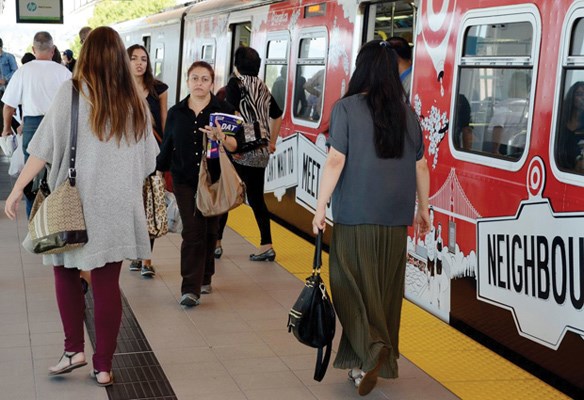The last of four drop-in information sessions for TransLink’s Southwest Area Transport Plan will take place at the Cannery Farmers’ Market in Steveston this Sunday.
And while Translink has launched a round of online public consultation for the plan, asking residents of Delta and Richmond how transit service and infrastructure can be improved, retired transportation planner and blogger Stephen Rees says the process could prove unproductive.
“I find it odd [TransLink] would be asking people what their (transportation) priorities are when they have no power to solve the existing problems,” said Rees.
An online survey will ask residents to address personal aspects of their transportation habits, from driving to walking, until May 6 via TransLink.ca/SWATP.
The survey asks residents to propose three changes they would like to see happen for Richmond and Delta, otherwise known as the Southwest Area.
The survey links out to the 2014 Mayors’ Council Transportation and Transit Plan for Metro Vancouver.
“These priorities identified the need for types of services, but not the specific routes or specific areas that would benefit. An Area Transport Plan will establish a blueprint for the unique transit and transportation needs of the Southwest sub-region,” notes TransLink.
However, the plan is incumbent upon available funding, which Rees says should be the top priority.
“They don’t have the power to deliver,” said Rees, noting the failed referendum on a regional sales tax.
Furthermore, with the provincial government making major transit-related decisions that run contrary to the mayors’ council’s plan, Rees questions how serious people’s opinions will be considered.
“Generally people are a bit cynical of this process. At open houses, no one can answer questions and there’s never any commitments,” said Rees.
A major critic of the province’s decision to build a $3.5 billion bridge at the George Massey Tunnel crossing, Rees contends any thoughtful insight from the public to improve transportation choices will be largely inconsequential considering how the 10-lane bridge will affect the Southwest Area.
Rees said the Canada Line and improved cycling lanes are proof rapid transit and active modes of transportation work.
“And yet we continue to build freeways when we know they don’t work,” he said.
Residents have the opportunity to comment freely. Rees said he expects seniors to ask for properly funded HandyDart service and the disabled to ask for the province to reverse its decision to stop subsidizing transit passes for them.



